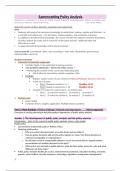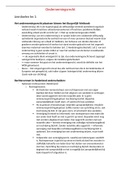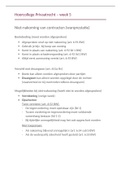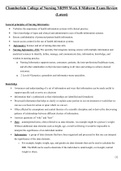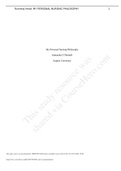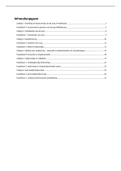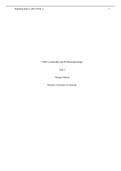Samenvatting
Samenvatting Policy Analysis - Ellen Fobé
- Vak
- Policy Analysis
- Instelling
- Katholieke Universiteit Leuven (KU Leuven)
Geslaagd in eerste zit! (17/20) Samenvatting handboek, colleges en slides (Public) Policy Analysis door (professor) dr. Ellen Fobé (KUL) Bevat een uitgebreide samenvatting van het handboek, alle colleges en de bijbehorende slides. Ook de gastcolleges zijn samengevat. + Aantal schema's, tabelle...
[Meer zien]
